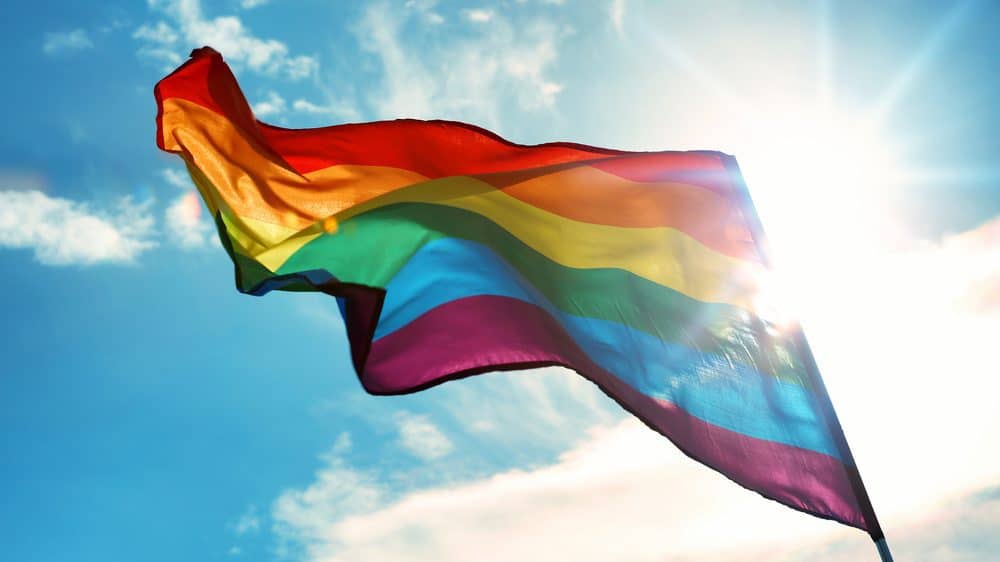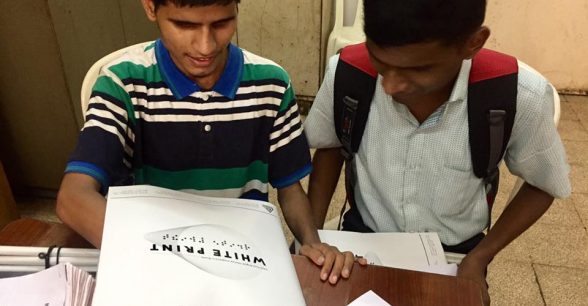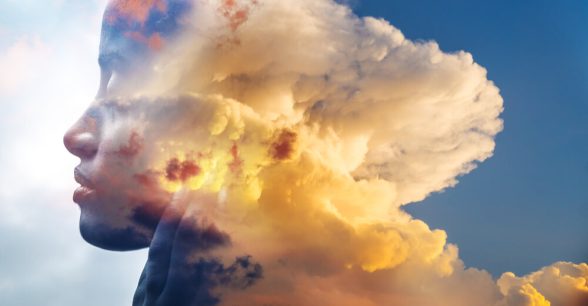How Can I Feel Proud When LGBTQIA+ Pride Events Exclude Me?
It’s June, which means it’s Pride season! My queer little heart will always get excited about this time of year, but it’s also painful. It’s been a long time since I have participated in a Pride celebration. I’ve identified as queer and/or bisexual for as long as I can remember, with the associated high school bullying and all, and I used to look forward to the parties, parades, and events. Since I got sick from chronic illnesses, I haven’t been able to participate in the events. I am often too fatigued and in pain to get out of bed, never mind leaving the house. I also am extremely sensitive to the sun which means that daytime outdoor activities are not an option.
I am not the only one and this is not the only reason why people who theoretically want to attend Pride events can’t be there. Some disabled queers could attend if the events were accessible (and a disgusting amount are not). Other folks can’t go because the police presence at most Prides makes them uncomfortable or downright traumatized, and Black folks and other queers of color rightly feel unsafe. There are also people who want to go but can’t because they are in hospitals for mental or physical health reasons or incarcerated in jails and prisons. Sometimes people have to work or aren’t able to be out about their sexual orientation or gender identity, or are just sick of how corporate Prides have become.
As a disabled queer person living in a small city I pretty much always feel isolated from other LGBTQIA+ folks. There are months where I am unable to get out of bed, and even when I am well enough to leave the house the only events here are at night which is when my pain and fatigue is at its worst. Sometimes there are no amount of accommodations that would make Pride accessible for me, and sometimes I could attend with the right accommodations. The problem is that no one seems to care or mind that I am not at these events. Though it feels personal, it’s not about me personally. It’s about some queer bodies being valued by Pride organizers while other queer bodies that aren’t.
So, instead of celebrating Pride and hanging out with other queer folks I am in bed feeling bad about it. Instead of having fun times, I have anger. I am angry at how isolated I feel as a queer person who is unable to interact in person with other queer people outside of my family. I’m livid that there are not places I can bring my kids (some of whom are also queer) that also upholds our values of disability inclusion and anti-racism. I’m pissed off that the mainstream seems to care only about the L (lesbian) and the G (gay) in LGBTQIA+. And I am furious that there are so many other queer people like me feeling alone and isolated during Pride because we can’t get out of our beds or our locked wards or our jail cells and no one seems to care. I am not proud.
I have had to work hard to not feel totally isolated from queer community. Some of the things that have helped me to fight the feelings (and reality) of isolation are:
- Online Communities – I’ve previously written about depending on online communities to fight isolation and loneliness when I’m too sick to get out of bed. I follow lots of queer people on Twitter, I’m in queer-related Facebook groups, and I reach out to queer friends via messaging and texting. I honestly don’t know what I would do without this technology and am grateful that I don’t have to figure it out.
- Be as Out as Possible– I’m fortunate that I am able to be public about my queerness. That helps me to connect to other queer people in passing the times I can leave my house, even if briefly. I may not be able to attend Pride events, but talking about Pride with a nurse at the doctor’s office or wearing something ridiculously queer to the store (or even in bed!) makes me feel better.
- Have Queer Friends and Family Over– I am super lucky to live with my queer partner and some queer kids but that’s not always enough. Instead of going to Pride, I try to have Pride come to me by having some queer friends over. Obviously, it’s nowhere near the celebration that Pride can be but a few friends, snacks, and no cops makes it much more accessible to me and other friends who can’t or choose not to do our local Pride.
- Consume Queer Media– There’s a lot of great queer media out there. Spending some time watching, reading, and listening to queer stories, especially stories told by LGBTQIA+ folks themselves, can help me feel connected to a cultural tradition of queer storytelling. There is so much out there that it’s impossible to keep up with it all, but here are 50 people to check out.
- Participate in Queer Activism– Even if you can’t leave your house, there are things you can do. Categorizing online activism as “slacktivism” is ableist and inaccurate. All of us have things that we can do to fight for a better world. Also remember that like disability activism, queer activism cuts across many different topic areas including mass incarceration, police brutality, racism, health care, etc.
Being isolated sucks, especially when it feels like a choice made for you on the part of organizers. However, Pride is not the only way to feel connected to queer history, culture, and community. Since queerness lasts all year round, so can pride.
About Rooted In Rights
Rooted in Rights exists to amplify the perspectives of the disability community. Blog posts and storyteller videos that we publish and content we re-share on social media do not necessarily reflect the opinions or values of Rooted in Rights nor indicate an endorsement of a program or service by Rooted in Rights. We respect and aim to reflect the diversity of opinions and experiences of the disability community. Rooted in Rights seeks to highlight discussions, not direct them. Learn more about Rooted In Rights



